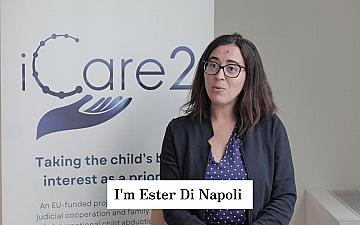Shared Security Data in the EU: Interoperability in Law Enforcement
In today’s increasingly digital and interconnected world, the ability of law enforcement agencies to share data across systems, organisations, and borders, commonly referred to as interoperability, is becoming essential to effective security operations. By enabling timely access to relevant information, interoperability supports the detection of criminal patterns, enhances threat anticipation, and streamlines investigations. At the heart of this transformation is the European Data Strategy, which seeks to position the EU as a leader in a data-driven society by promoting the secure and efficient flow of data across sectors and Member States. Yet, as promising as this vision is, it also brings significant challenges, particularly in sensitive areas like law enforcement and public safety, where data sharing must be carefully balanced with fundamental rights and ethical considerations. To address these concerns, the EU is developing a range of legislative and policy tools aimed at building a secure, rights-respecting framework for the exchange of security-related data.
Open Data vs. Open-Source Intelligence (OSINT)
Before exploring the legal and ethical dimensions of data sharing, it’s important to distinguish between two often-confused concepts: open data and open-source intelligence (OSINT). Though both rely on publicly available information, they serve different purposes.
· Open data refers to information that is made freely available for anyone to access, use, and share. To qualify as open, the data must be machine-readable, non-discriminatory, and accessible to all. Within the EU, open data legislation focuses on promoting the reuse of high-value datasets to foster transparency, innovation, and broad access.
· Open-source intelligence involves collecting and analysing publicly accessible information for investigative or intelligence purposes. Unlike open data, OSINT is operational in nature and is frequently used by law enforcement to track threats like human trafficking, terrorism, and cybercrime.
While the purposes differ, both open data and OSINT can contribute significantly to crime prevention and investigation.
The EU’s Legal Framework for Secure and Ethical Data Exchange
Recognizing that seamless cross-border cooperation is essential to effective law enforcement, the European Union is moving toward a more integrated framework for freedom, security, and justice. Key initiatives such as the EU Innovation Hub for Internal Security and the development of Common European Data Spaces aim to facilitate data exchange tailored to the operational needs of security and justice authorities.
However, the success of such platforms depends not only on their technical capacity but also on their compliance with EU legal and ethical standards. The European Parliament has emphasized that, especially in a time characterized by big data and algorithmic decision-making, all data-sharing initiatives must fully respect fundamental rights. While data sharing is vital for tackling complex threats, it can introduce serious risks such as breaches of privacy, misuse of information, and unauthorized surveillance, especially when personally identifiable information (PII) is involved. To mitigate such risks, the EU has established a strong legal framework. At its core is the General Data Protection Regulation (GDPR), which governs the collection, processing and storage of personal data, including in some law enforcement contexts. Complementing the GDPR, the Law Enforcement Directive (2016/680) outlines specific safeguards for the processing of personal data by competent authorities for the purposes of prevention, investigation, detection, or prosecution of criminal offences. Together, these legislative instruments reflect the EU’s broader effort to harmonise data protection standards across Member States, ensuring that innovations in security data sharing are not only effective, but also aligned with Europe’s commitment to privacy, accountability, and the rule of law.
Looking Ahead
The EU’s evolving legal environment reflects a strong commitment to becoming a global leader in secure and ethical data use. However, achieving this ambitious goal will require overcoming significant challenges. In addition to the existing comprehensive legal framework on data protection, further regulations may need to be adopted to ensure that the law enforcement authorities implement technologies that are not only innovative but also ethically and legally sound.
As part of this broader vision, the European Security Data Space for Innovation (EU SDSI) represents a major step toward creating a trusted and interoperable framework for security data exchange across Member States. The TESSERA project, which lays the groundwork for the EU SDSI, examines how datasets relevant to law enforcement can be mapped, standardised, and shared securely under common governance and rights- preserving safeguards. Its findings aim to define the technical and ethical foundations for effective, privacy-respecting data interoperability in the EU.
The development of the Common European Data Spaces presents a valuable opportunity for the EU to raise standards in data protection and to shape new, forward-looking policies and regulations. If successful, this initiative could enable the EU to lead the way in building intelligent and interoperable infrastructures that support effective security cooperation while fully upholding fundamental rights.
For a more detailed analysis of the legal and strategic challenges surrounding shared security data in the EU, see the article “Trends in Shared Security Data”, which explores the evolving framework behind the European Data Strategy and the distinction between open data and open-source intelligence in law enforcement contexts.








